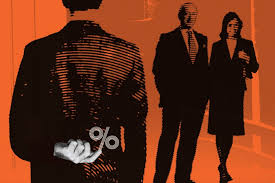I have just finished reading “Black Box Thinking” by Matthew Syed. I am really glad I bought this book as Syed provides a straight forward and fascinating insight into how our understanding of success and failure creates and destroys value in organisations and society everyday.
Some of the most fundamental problems we face are simply based on a lack of transparency. The inability of governments e.g. in the US and here in Australia to report transparently on the prevalence of medical error rates, for instance, leads to ongoing preventable death and injury in both countries that remain out of the headlines and out of public debate.
This weakness arises time and again in the administration of justice, health care, foreign aid and so on. Syeds’ work dovetails nicely with the book “Thinking Fast and Slow” by Daniel Kahneman , about human behaviour , decision making and our ignorance of what drives our choices.
“If we wish to fulfill our potential as individuals and organizations , we must redefine failure.”
Mathew Syed , p266
I would make this book compulsory reading for any board member and ask them to answer questions about how the organisation they lead creates and destroys value and what evidence they have for their answers.
One of the most powerful insights in this book for me was about the “Scared Straight” documentary. This is not about gay conversion therapy but a true analysis of a program established by well meaning people to literally scare young juvenile offenders into going straight i.e to become law abiding citizens.
This is a powerful exemplar of the terrible consequences of blindly following our beliefs, denying reality and fitting data to our worldview. In Chapter 12 Syed covers the real life British tragedy flowing from a blame culture, tabloid newspapers and a social welfare system under pressure.
Syed is able to take us from these real life stories and use them to highlight the internal threats in organisations to the health and wellbeing of their people and the customers they serve. The implications of hubris, opaque practices and deeply held but unfounded beliefs that undermine governance and value creation around the world are brought into the bright light of his work.
I highly recommend this book to anyone interested in improving our organisations and society.





